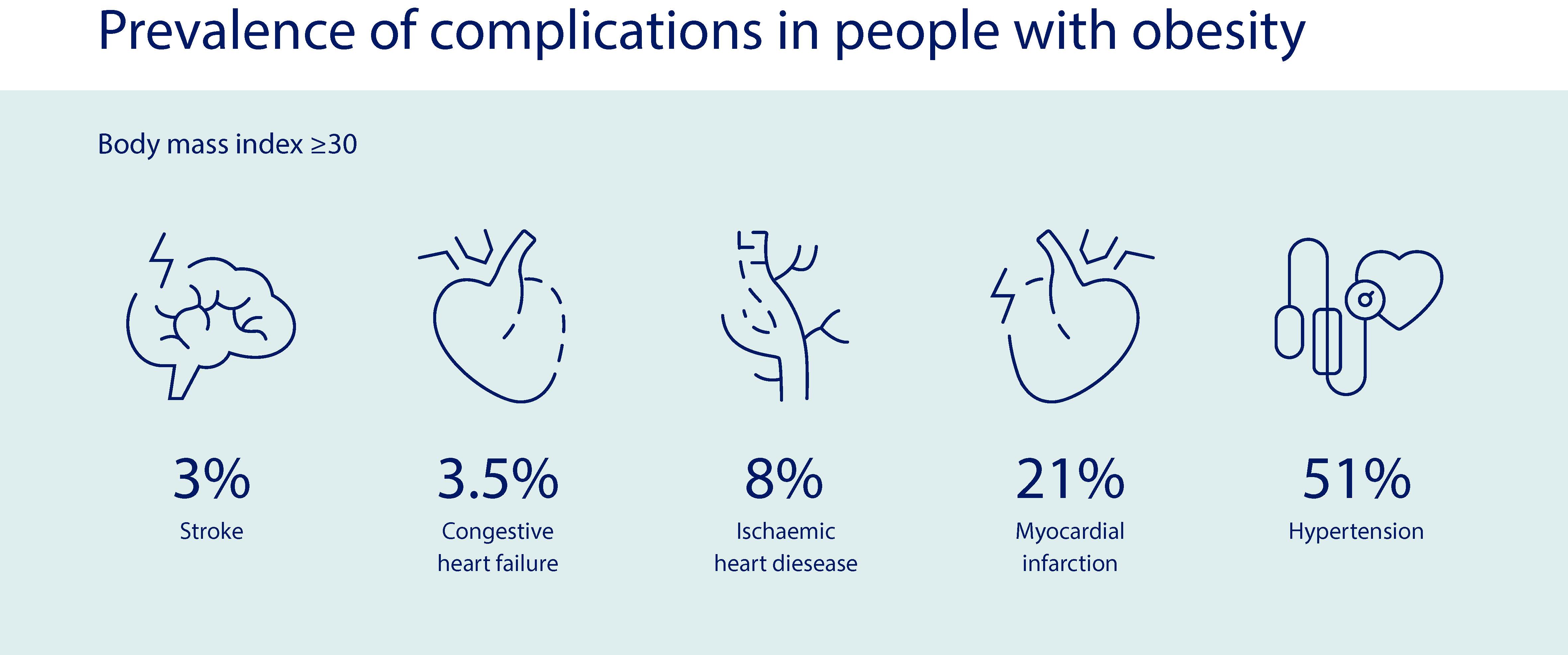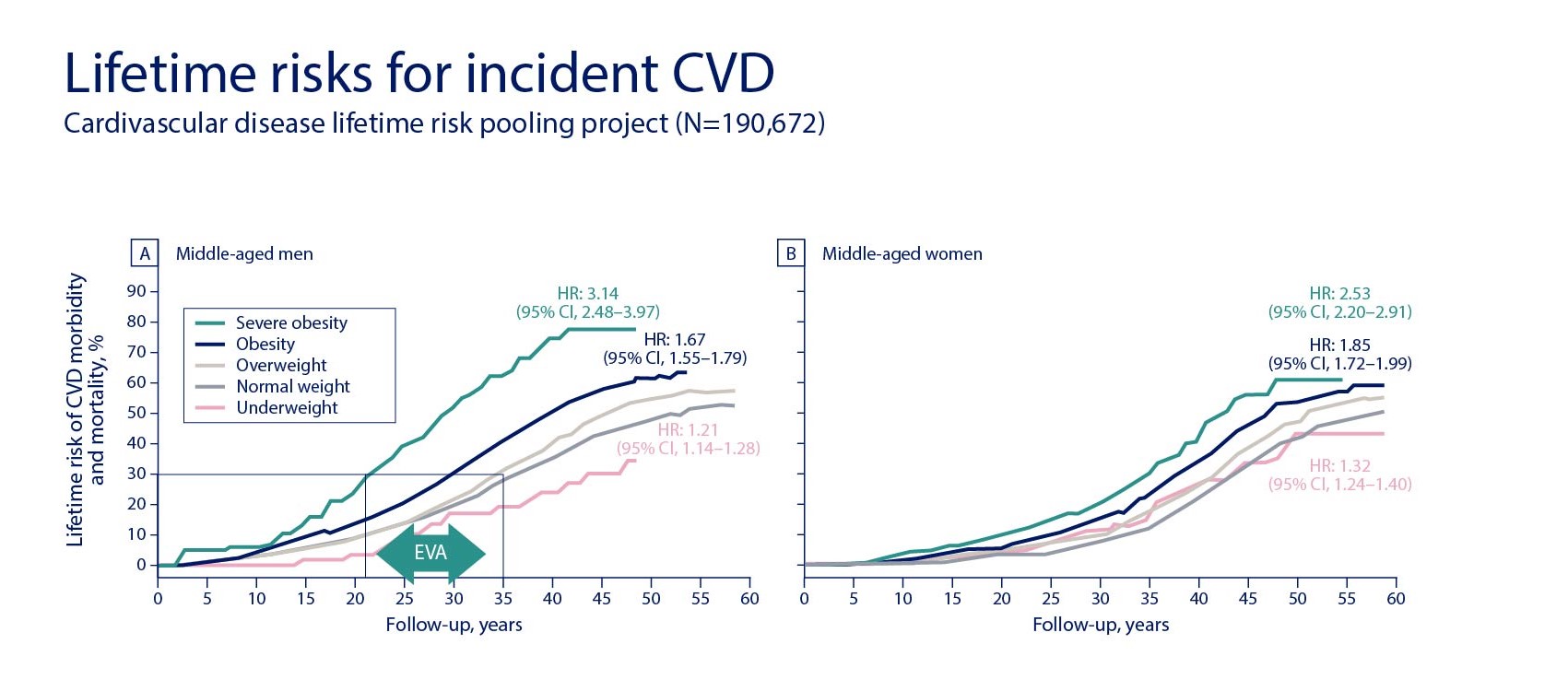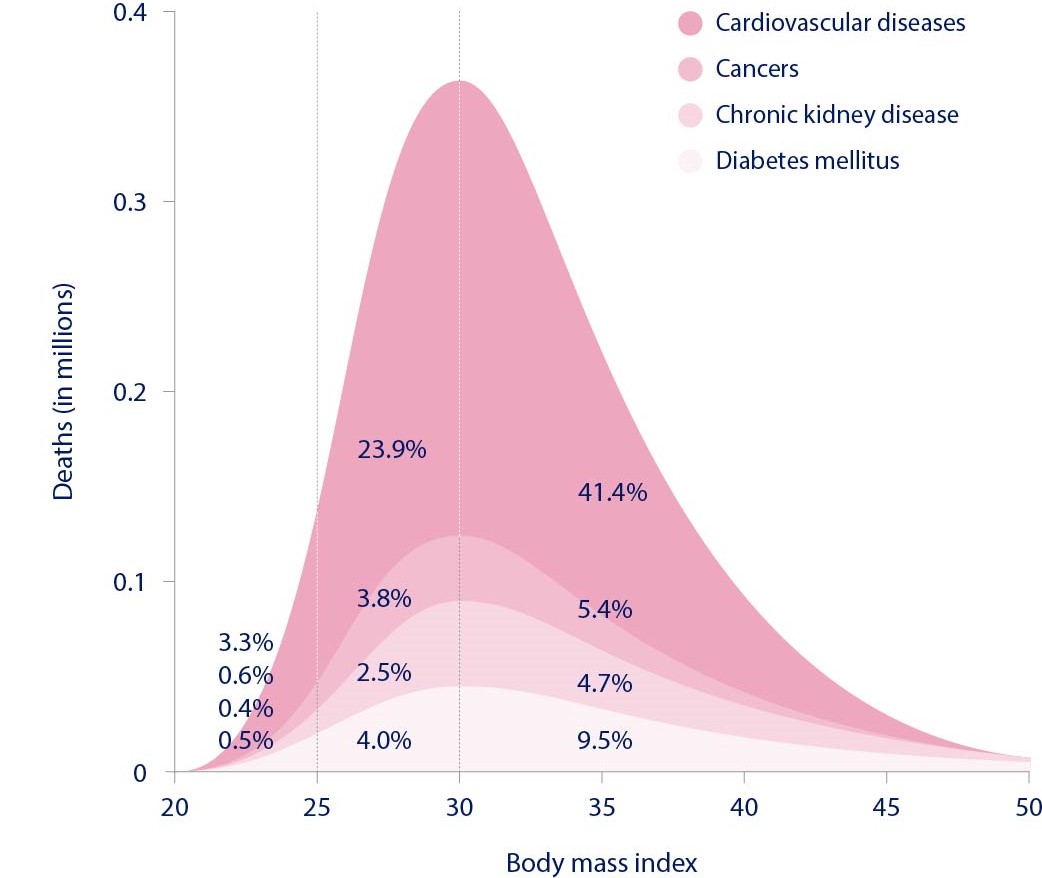
What to expect:
Large population and observational studies have shown that obesity and cardiovascular disease (CVD) are closely associated.1,2 Conditions such as congestive heart failure, ischaemic heart disease, myocardial infarction and stroke are more prevalent in individuals living with obesity and the lifetime risk for incident cardiovascular disease increases exponentially in both men and women with higher body mass index (BMI).3 Moreover, most deaths associated with high BMI are caused by CVD.4
The prevalence of CVD comorbidities is higher in patients with obesity, as a detailed population health survey of 200,000 people established.3 The 2005–2012 National Health and Nutrition Examination Survey (NHANES) compared 100,000 people with obesity (BMI≤30 kg/m2–≥40 kg/m2) with 100,000 people of normal weight (BMI<25 kg/m2). It found that, compared with adults of normal weight, 51% of adults with obesity had hypertension, 8% had ischaemic heart disease, 3.5% had congestive heart failure, 3% stroke and 21% had had a myocardial infarction.3

Over a person’s lifetime, the risk for CVD morbidity, disability and death increases as the individual gains more weight, a phenomenon seen in both men and women.2
Compared to people without overweight or obesity, risks of heart attack, stroke or other cardiac events are found to be two and a half times as high for women and almost three times as high for men in the higher BMI categories (>40kg/m2).2 Even individuals whose BMI puts them into the category only of having overweight (BMI >25kg/m2) face a significantly higher risk of developing CVD at an earlier age, resulting in a greater proportion of their lives lived with cardiovascular morbidity and disability.2

Such are the risks of CVD for people with high BMI that cardiovascular disease contributes to the majority of deaths associated with high BMI, according to a study of 68.5 million people in 195 countries conducted by the ongoing Global Burden of Disease Study, over 25 years.4 The study showed that of almost 4 million deaths related to a high BMI in 2015, more than two-thirds were caused by cardiovascular diseases.4

More than two thirds (68.5%) of deaths related to high BMI were due
to CVD
Click here to learn more about other complications related to obesity and the link between obesity, BMI and risk of mortality.
Global Burden of Disease researchers are calling for surveillance of BMI and use of evidence-based interventions to address the problem.4
For more information on weight loss and cardiovascular benefits, click here.
HQ22OB00282, Approval date: January 2023
The site you are entering is not the property of, nor managed by, Novo Nordisk. Novo Nordisk assumes no responsibility for the content of sites not managed by Novo Nordisk. Furthermore, Novo Nordisk is not responsible for, nor does it have control over, the privacy policies of these sites.
At Novo Nordisk we want to provide Healthcare Professionals (HCPs) with scientific information, resources and tools.
